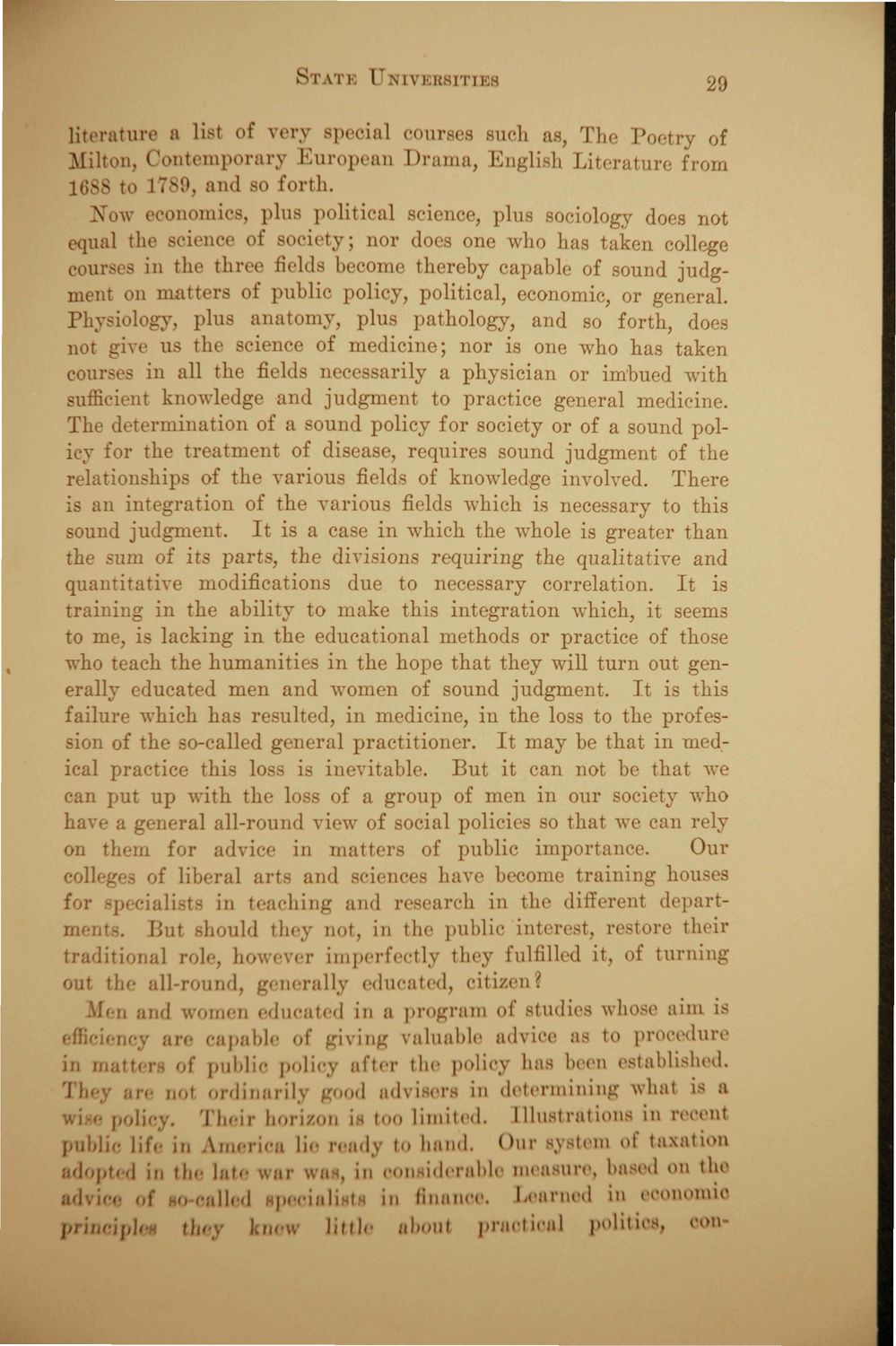| |
| |
Caption: Booklet - Kinley Speech Cirrculum and Consequences (1924)
This is a reduced-resolution page image for fast online browsing.

EXTRACTED TEXT FROM PAGE:
I I'A'II l' MVI-.KSITIK8 2fi literature 8 list of very special courses such as, The Poetry of Milton, Contemporary European Drama, English Literature from 1688 to 1789, and so forth. Now economics, plus political science, plus sociology does not equal the science of society; nor does one who has taken college courses in the three fields become thereby capable of sound judgment on matters of public policy, political, economic, or general. Physiology, plus anatomy, plus pathology, and so forth, does not give us the science of medicine; nor is one who has taken courses in all the fields necessarily a physician or imbued "with sufficient knowledge and judgment to practice general medicine. The determination of a sound policy for society or of a sound policy for the treatment of disease, requires sound judgment of the relationships of the various fields of knowledge involved. There is an integration of the various fields which is necessary to this sound judgment. I t is a ease in which the whole is greater than the sum of it- parts, the divisions requiring the qualitative and quantitative modifications due to necessary correlation. I t is training in the ability to make this integration which, it seems to me, is lacking in the educational methods or practice of those who teach the humanities in the hope that they will turn out generally educated men and women of sound judgment. I t is this failure which has resulted, in medicine, in the loss to the profesion of the so-called general practitioner. I t may be that in medical practice this loss is inevitable. B u t it can not be that we can put up with the 1 ss of a group of men in our society who have a general all-round view of social policies so that we can rely on them J r advice in m a t t e r s of public important . Our eoll< of liberal art and sciences have become training houses for sp< ial 3 in teaching and n arch in the different departn . But should they not, in the public interest, restore their traditional role, however imperfectly they fulfilled it, of turning the all-round, generally educated, citizen? M ti and WODien educated in a program 01 Studies whose aim is - are capable of giving valuable advice as to procedure in m f public policy after the policy has been established. Tie are not ordinarily good advisers in determining what is a wi die Their horizon is t<>n limited. Illustrations in n cut ablic lifV in America li<- I ely to hand. Our svstem of taxation < p | in the late • [f \\ a :, in con derabh m isure, ha sod On the , ad of -o railed Specialists in finaie I arued in economic inciphtf th knew little about practical politic sou-
| |